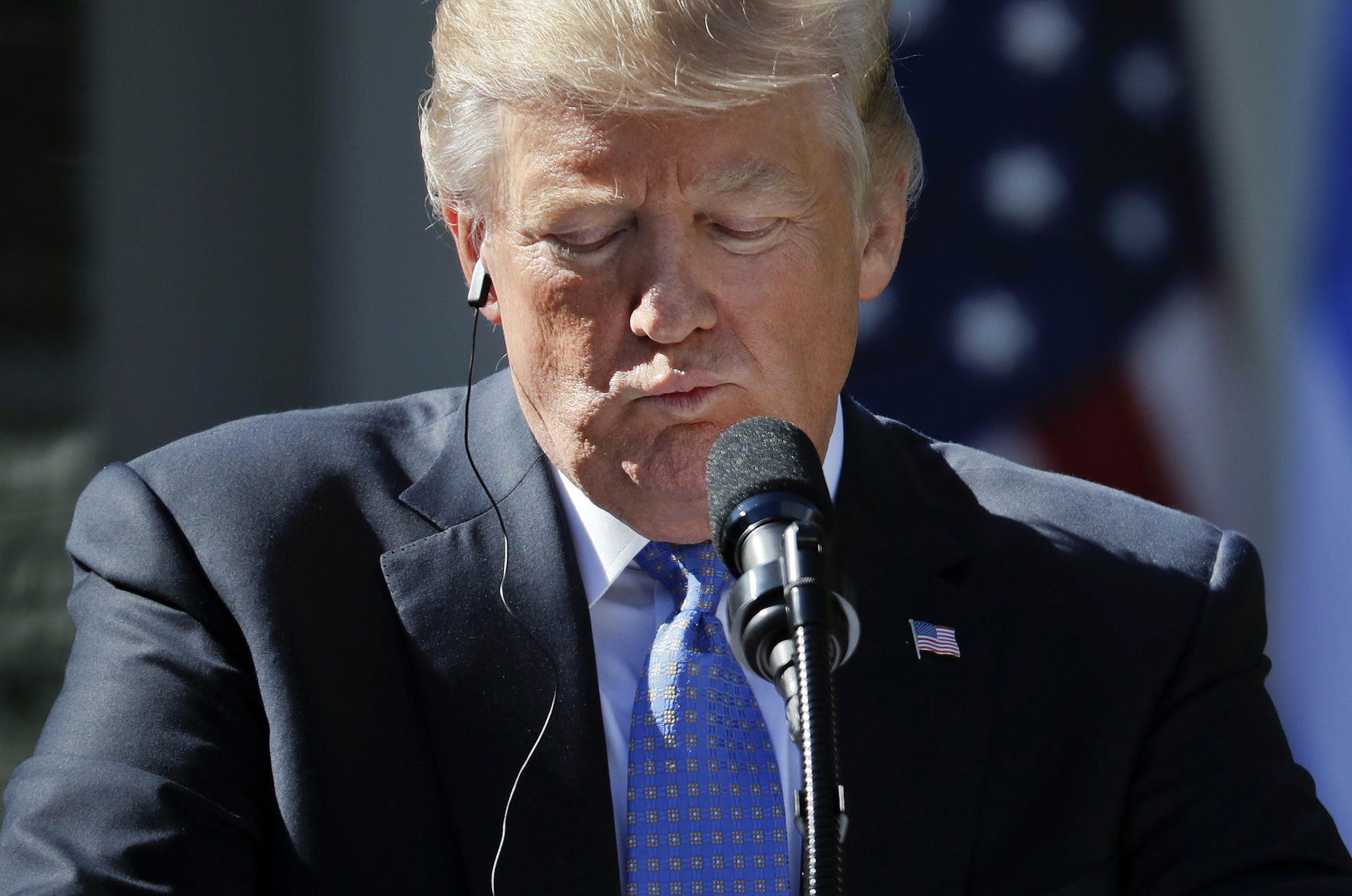NEW YORK (AP) — A federal judge on Wednesday pressed government lawyers to explain why President Donald Trump’s ownership of hotels patronized by foreign government officials didn’t violate the Constitution, a key question that could shed light on Trump’s finances
NEW YORK (AP) — A federal judge on Wednesday pressed government lawyers to explain why President Donald Trump’s ownership of hotels patronized by foreign government officials didn’t violate the Constitution, a key question that could shed light on Trump’s finances if a civil lawsuit heard in New York is allowed to proceed.
At issue in the case brought by the left-leaning public policy group Citizens for Responsibility and Ethics in Washington is the interpretation of the so-called foreign “Emoluments Clause” of the Constitution, a provision meant to prohibit bribery of federal officials by foreign governments.
A lawyer for CREW, which represents competing restaurateurs, hotel owners and others in the industry, said during oral arguments in Manhattan federal court that by doing business with foreign officials with an interest in currying favor with the White House, Trump runs afoul of the Constitution. A lawyer for the Department of Justice disagreed, saying a violation only happens if an actual act is done in exchange for a payment.
U.S. District Judge George B. Daniels said he’d rule on whether the case can go forward in the next 30 to 60 days. The government has sought to dismiss the case.
If Daniels allows the case to proceed, it could reveal much about Trump’s business and personal finances, possibly forcing him to disclose tax returns and other financial information in the course of discovery.
Trump, who made his fortune in real estate, marketing and entertainment, bucked decades of precedent by refusing to release his tax returns during the 2016 presidential elections. That has fueled suspicions about his possible conflicts-of-interests as well as concerns about the source of his income, including whether any of it comes from sources abroad.
Government lawyer Brett Shumate argued for a precise definition of the Emoluments Clause, saying that because an emolument includes the exchange of payment for an official act, Trump’s business income couldn’t qualify as such a payment.
Daniels repeatedly questioned him on that point and others, proposing that if the president promises to take an official act in exchange for money — by signing a treaty, for example — the money transferred is an emolument whether or not the president ever follows through on the action.
The framers of the Constitution didn’t just want the president not to take money from foreign governments, “they wanted him to not take the promise of the money,” he said.
Later in the hearing, Daniels pushed CREW attorney Deepak Gupta to explain why the issue is even something the courts should have to resolve, asking at one point whether Congress, instead of the courts, was best suited to resolve the case.
“They have the power to act if they had a concern about acting,” Daniels said, at one point likening litigation on behalf of rival hotels, restaurants and good-government groups to “a street fight” with the president.
The clause at issue allows for that, saying no U.S. official can “accept any present, emolument, office, or title of any kind whatever, from any king, prince, or foreign state” without the consent of Congress.
Attorneys for CREW say that court precedent on the topic gives the judicial branch authority to explore the issue.
CREW, in a lawsuit first filed in January, has argued that Trump, who didn’t put his businesses in a blind trust after becoming president, has an unfair business advantage while in the White House that harms his rivals in the industry, taking away their business and enriching him by actors with an incentive to curry favor for official acts.
As part of their case, they submitted affidavits from industry experts detailing the competitiveness in the market for high-end hotels and restaurants in New York and Washington, D.C., that cater to foreign diplomats and other government officials.
Two other emoluments-related lawsuits have also been filed against Trump by members of Congress and the attorney generals for Maryland and the District of Columbia.
———
Abdollah reported from Washington.


